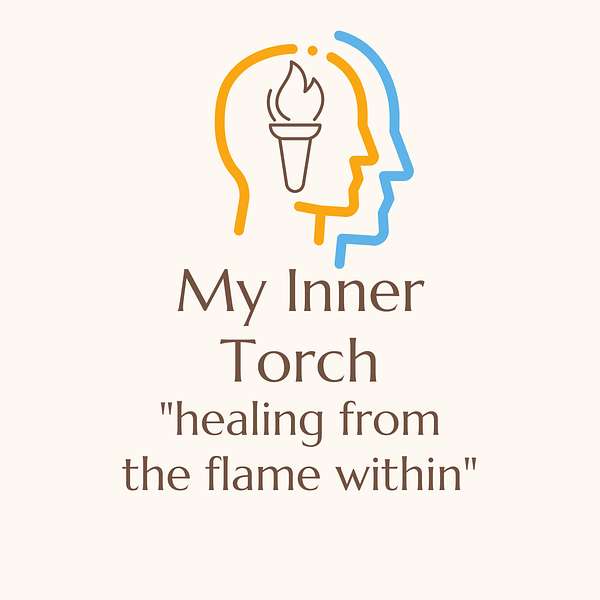
My Inner Torch
My Inner Torch offers direct and personal insight with help for those of us in a relationship with someone who is undiagnosed/diagnosed with a Cluster B Personality Disorder. This is a safe place to come for words of inspiration that draw from my personal experiences and is produced to gain understanding and to find direction as we navigate through the often difficult relationships with those we love who suffer with a Cluster B personality disorder that includes BPD and NPD. PLEASE NOTE: This podcast is NOT for those who suffer with these disorders. This podcast is for survivors of these challenging and difficult relationships.
My Inner Torch
Cognitive Dissonance and your Cluster B. A tragic mix.
Use Left/Right to seek, Home/End to jump to start or end. Hold shift to jump forward or backward.
🎯 Key Takeaways from this week's Podcast:
Core Points:
- I’ve learned that cognitive dissonance deeply hinders escaping abusive relationships. As a victim, I constantly questioned my experiences, blaming myself.
- I now understand that Cluster B personality disorders involve subtle abuse: passive aggression, gaslighting, and silent treatment.
- I can now recognize manipulation tactics like “That never happened,” “You’re too sensitive,” “No one else has a problem with me.”
- I’ve learned to trust my gut feelings: my anxiety, dread, and exhaustion signal an unhealthy relationship.
- Journaling has become my lifeline to identify patterns of abuse. I document incidents to see recurring manipulation.
- I’ve discovered the power of seeking external validation: talking to a therapist, friend, or joining a support group.
🔍 Summary
Cognitive Dissonance in Abusive Relationships
I want to share my experience with cognitive dissonance and how it prolonged my stay in an abusive relationship, especially with someone who exhibited Cluster B personality disorder traits. Cognitive dissonance was my mental struggle between what I felt and what I knew, causing intense self-doubt and confusion. I often minimized the abuse, constantly rationalizing my partner’s behavior by telling myself, “They never hit me” or “Maybe I’m the problem.” This internal conflict trapped me in a devastating cycle of self-blame and prevented me from acknowledging the painful reality of the abuse.
Characteristics of Cluster B Abuse
The abuse I experienced wasn’t always obvious. Unlike physical violence, Cluster B abuse is subtle and insidious. I endured passive aggression, gaslighting that made me question my sanity, guilt-tripping, and painful silent treatments. The lack of physical violence made it incredibly difficult for me to identify and label what was happening. My abuser’s intermittent periods of charm and generosity further confused me, making it challenging to recognize the manipulative behavior for what it was.
Identifying and Overcoming Cognitive Dissonance
Through my journey, I’ve discovered strategies to overcome cognitive dissonance and recognize abuse. Educating myself about Cluster B personality disorders and their manipulation tactics was crucial. I learned to recognize common gaslighting phrases like “You’re imagining things” or “You always overreact.” Keeping a journal became my lifeline – documenting incidents, no matter how small, revealed patterns of abuse I had previously overlooked. I learned to trust my gut feelings, paying attention to physical reactions like chest tightness and emotional exhaustion.
Seeking External Support and Validation
The most transformative step for me was seeking external validation. Talking to a trusted friend or therapist, and joining a support group provided the perspective I desperately needed. It took me years to understand my situation without external help. My goal is to provide support and understanding to others experiencing similar struggles. I want everyone to know that love should never make you feel anxious, small, or uncertain about your reality.